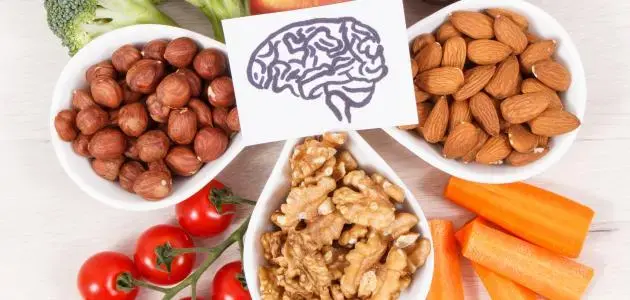Can Vitamins Improve Memory?
Some vitamins and healthy fats may help lower the risk of memory loss and even conditions like Alzheimer’s. Here’s a breakdown of the key vitamins that support brain health and memory function:
Vitamin B12
Vitamin B12 is essential for keeping your red blood cells and nervous system in good shape. Low levels—especially common in older adults and vegetarians—can lead to memory problems. Some studies have shown that supplementing with B12 can help improve memory in people with low levels. Natural sources of B12 include meat (like beef and poultry), fish (especially haddock and tuna), dairy products, eggs, and certain nutritional yeasts.
Vitamin E
Vitamin E is a powerful antioxidant that may help protect brain cells and improve memory, especially in older adults. One animal study even found that it could help reduce memory loss caused by poor sleep. Foods rich in vitamin E include sunflower seeds, almonds, spinach, avocados, pumpkin, kiwi, salmon, shrimp, olive oil, wheat germ oil, and broccoli.
Vitamin D
Vitamin D supports brain, immune, and nervous system health. Low levels of it may increase the risk of Alzheimer’s and other types of dementia. You can get vitamin D from sunlight, foods like egg yolks, liver, and fatty fish, or through fortified foods like milk and cereals. Supplements are also an option if you’re not getting enough from other sources.
Vitamin K
Vitamin K plays a role in brain function and memory. Research suggests higher vitamin K levels may be linked to better episodic memory in older adults. You can find vitamin K1 (mostly from plants) in leafy greens, broccoli, cabbage, pickles, asparagus, okra, green beans, kiwi, Brussels sprouts, and green salads. Vitamin K2 (found in some animal and fermented foods) comes from meat, cheese, and eggs, or is produced by gut bacteria.
Recommended Daily Amounts
Vitamin B12
| Age Group | Daily Amount (mcg) |
|---|---|
| 0–6 months | 0.4 |
| 7–12 months | 0.5 |
| 1–3 years | 0.9 |
| 4–8 years | 1.2 |
| 9–13 years | 1.8 |
| 14+ years | 2.4 |
| Pregnant | 2.6 |
| Breastfeeding | 2.8 |
Vitamin E
| Age Group | Daily Amount (mg) |
|---|---|
| 0–6 months | 4 |
| 7–12 months | 5 |
| 1–3 years | 6 |
| 4–8 years | 7 |
| 9–13 years | 11 |
| 14+ years | 15 |
| Pregnant | 15 |
| Breastfeeding | 19 |
Vitamin D
| Age Group | Daily Amount (mcg) |
|---|---|
| 0–12 months | 10 |
| 1–70 years | 15 |
| Over 70 | 20 |
| Pregnant/Breastfeeding | 15 |
Vitamin K
| Age Group | Daily Amount (mcg) |
|---|---|
| 0–6 months | 2 |
| 7–12 months | 2.5 |
| 1–3 years | 30 |
| 4–8 years | 55 |
| 9–13 years | 60 |
| 14–18 years | 75 |
| Women 19+ | 90 |
| Men 19+ | 120 |
| Pregnant/Breastfeeding (14–18) | 75 |
| Pregnant/Breastfeeding (19+) | 90 |
Other Nutrients That Help with Memory
Omega-3 Fatty Acids
Omega-3s, especially from fish oil, have been linked to better memory and lower risk of Alzheimer’s. They may also help reduce brain inflammation and age-related cognitive decline. You can get omega-3s from cold-water fish, walnuts, flaxseed oil, and certain vegetable oils.
Zinc
Zinc plays a role in how nerve cells communicate, which affects memory and learning. Good sources include oysters, beef, chicken, tofu, nuts, seeds, lentils, yogurt, oatmeal, and mushrooms.
Iron
Iron is vital for hemoglobin, the protein that carries oxygen in your blood. Low iron in early life can impact memory, learning, and mental processing later on. Top sources are canned clams, beef liver, fortified cereals, dark chocolate (45–69% cocoa), white beans, and cooked lentils.
Magnesium
Magnesium helps with brain function and memory. Research has shown it may improve learning and memory ability. You can get it from foods like pumpkin seeds, almonds, dark chocolate, spinach, avocados, and bananas.
A Quick Note on Vitamins
Vitamins help your body carry out essential tasks like metabolism, growth, and nerve function. They fall into two categories: water-soluble and fat-soluble. Each one serves a unique purpose, and not getting enough of a certain vitamin can lead to health issues. A balanced diet usually gives you what you need, but in some cases, supplements may be necessary.
Leave a comment
Your email address will not be published. Required fields are marked *




